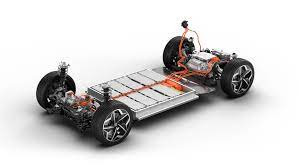In the electric vehicle (EV) space, advancements in battery technology are steering the industry towards a more sustainable and efficient future and here are some future battery technologies we can look forward to.
As we bid farewell to the traditional internal combustion engines (ICEs), emerging battery technologies can revolutionise the way we drive.
Lithium-ion batteries have long been the backbone of EV power, but we have more to come in the road to innovation.
Research is going on to enhance the capabilities of lithium-ion batteries, paving the way for lighter, more powerful, and longer-lasting options.
Solid-state batteries may be the game changer
This is a battery that can eliminate the risks of overheating, charges faster, and has a longer lifespan.
These solid-state batteries use solid electrolytes instead of the liquid or gel-types found in traditional lithium-ion batteries.
With no liquids to freeze or overheat, solid-state batteries promise to be the next big leap in EV technology.
Silicon anode batteries can boost capacity
Silicon, known for its abundance and conductivity, is emerging as a major technology for EV batteries.
Traditional lithium-ion batteries use graphite anodes, but silicon anode batteries use silicon instead, significantly boosting energy storage capacity.
This means more miles per charge and a lighter battery, addressing two major concerns of EV buffs.
Beyond lithium-ion are green alternatives
While lithium-ion batteries dominate the market today, we could see more eco-friendly alternatives soon that can further reduce carbon footprint.
Sodium-ion batteries with green energy
Sodium-ion batteries are grabbing eyeballs for their low-cost materials and environment friendliness.
Sodium, an abundant and cost-effective element compared to lithium, makes these batteries an attractive option for mass production.
Researchers are actively aiming to create sodium-ion batteries, which can rival the performance of the lithium ones.
Zinc air batteries breathe new life into EVs
Zinc-air batteries leverage oxygen from the air to generate power, making them lighter and potentially more energy-dense than lithium-ion batteries.
With zinc being widely available and affordable, these batteries may provide a greener solution to electric vehicles.
Challenges like limited rechargability of these batteries are being tackled.
Recycling revolution and second battery life
On this electric journey, sustainability is a key driver. Manufacturers are trying to make batteries recyclable and giving them a second life.
Recycling revolution of EV batteries
A robust recycling infrastructure is being developed to recover valuable materials like lithium, cobalt, and nickel from old batteries.
This not only eases the environmental impact but also lessens the demand for new mining activities. So, there could be a circular economy for EV batteries.
Second-Life of EV batteries
When EV batteries reach the end of their life, they still have plenty of energy left.
By repurposing used batteries for stationary storage applications, such as home energy storage or grid support, we can maximise their utility and reduce waste.
This second-life method contributes to a more sustainable future by extending the overall lifespan of EV batteries.
E-Vroooom’s views
The future of electric vehicle batteries is an exciting landscape of innovation, sustainability, and efficiency that will see EVs with a longer range, as well as lighter and cheaper batteries, which can even be recycled.


No comments:
Post a Comment